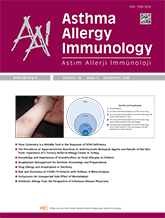


Objective: STK4 (serine-threonine protein kinase 4) deficiency is categorized under combined immunodeficiencies, which are a subgroup of primary immunodeficiencies that profoundly affect T cells. Autosomal recessive STK4 deficiency is characterized by recurrent bacterial and viral infections, mucocutaneous candidiasis, and CD4 + T cell lymphopenia. Autoimmune comorbidities including hemolytic anemia and idiopathic thrombocytopenic purpura, and cardiac problems have been reported in STK4-deficient individuals. Current diagnostic tools for STK4 deficiency include next-generation sequencing (NGS) and Sanger sequencing that detect DNA sequence variations, and western blotting, which evaluates altered protein expression. However, all of these assays are timeconsuming; and in particular, NGS is a costly clinical use tool for a diagnostic laboratory. In comparison, flow cytometry is a rapid and reliable system commonly employed in the diagnosis of a wide range of primary immunodeficiency disorders.
Materials and Methods: This study aimed to evaluate STK4 protein expression by flow cytometry among four patients with genetically confirmed STK4 gene mutations and seven healthy individuals. We calculated ΔMFI/cell values to investigate differences in protein expression among the subjects.
Results: STK4 protein expression was reduced in the peripheral blood mononuclear cells obtained from all STK4-deficient patients compared to those from the healthy controls. Flow cytometry data was validated by western blotting.
Conclusion: Flow cytometry is a rapid and reliable method to detect STK4 protein expression, qualified as a diagnostic tool to study STK4 deficiency.